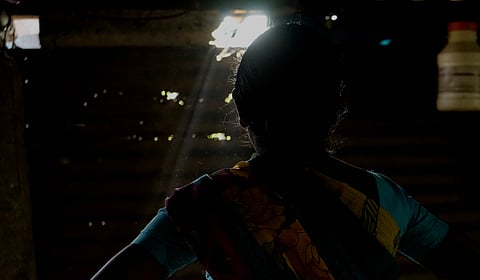

“Sometimes staying silent is also an act of resistance.”
Why should women remain victims of violence? When does the narrative shift and highlight the resilience of survivors?
The Surviving Violence Project is a collaborative initiative undertaken by a group of organisations backed by the British Academy to work with civil society, government and policymaking communities to study the current legal structures set in place for survivors and utilise findings to supplement future policy recommendations. The research is funded by the British Academy under their Heritage, Dignity and Violence programme (2020-2022).
The Project released a set of downloadable graphic booklets and short animations to approach and address these questions with clear language and crisp visuals. The resources have been developed based on the findings from a research project conducted by regional NGOs in Tamil Nadu, Maharashtra and West Bengal. The booklets are available in English and Hindi, whereas the videos are dubbed in English, Hindi, Tamil, Marathi and Bengali.
Women survivors respond to violent behaviour differently, for the way the women engage with survival strategies are informed by societal standards. Women are resilient but that does not mean they must endure violence. The resources convey this message, urging women survivors to seek help without guilt or doubt.
Some survivors' statements have been taken from the project's 3-state report:
"The way we are conditioned, it was hard to complain about any suffering."
Fauzia, McS02 survivor, rural Maharashtra
"I keep suffocating in my mind because I cannot share this with anyone."
Amutha, TaS01 survivor, urban Tamil Nadu
"The best I can do is to accept my faith and simply live with abuse."
Sadhana, WbS12 survivor, semi-urban West Bengal
Nandini Ghosh, Assistant Professor of Sociology at Institute of Development Studies, Kolkata, pointed out that often the responsibility of ‘preserving the family and the marriage’ falls on the woman. The threshold for violence is therefore very high, preventing women from seeking help as soon as they are subject to such situations. When a woman finally seeks help, it is because of a trigger: an incident of such magnitude that she realises the intensity of her situation. Beyond gendered thresholds for violence, financial and social status influence women’s approach to survival. “Help seeking for marginalised women is very different from help seeking for mainstream, dominant caste women,” said Nandini.
Preeti Karmarkar, co-investigator, said that these findings have been derived from detailed interviews with 180 survivors from three states–Tamil Nadu, Maharashtra and West Bengal–over the course of two years (2020-2022). The survivors’ testimonies were supplemented with statements from about 180 social workers such as lawyers, medical practitioners and NGO volunteers among others.
Philippa Williams, Associate Professor in Human Geography at Queen Mary University of London, shared the resources and a few open-access pictures taken by feminist photographers as a part of the project. Photographers Priyadarshini Ravichandran, Vidya Kulkarni and Debalina captured candid photographs in Tamil Nadu, Maharashtra and West Bengal respectively. Open access photographs do not feature survivors, said Philippa; it features people from the community, added Nandini.
Regarding the creative process, Nandini said that briefs of interviews were shared with the photographers, who then captured pictures representing resilience through their own lenses. The goal was to reframe domestic violence, said Philippa.
Vidya, one of the three photographers, talked about how photographic elements such as light, contrast and saturation were used to represent survival as experienced by the survivors. The photos do not reveal the faces of subjects; instead the focus is on symbols of resilience, she said. Two hands clasped around the thorny stems of fresh pink roses, a woman’s reflection in a bucket full of water, a bangle-clad hand gripping fabric: pictures with many hues and shapes, none hinting at violence. “What the photographer sees and captures is different from what the viewer sees. These photos are open to interpretation,” said Vidya.
Swarna Rajagopalan, founder of The Prajnya Trust, said though the findings from this research merely affirm existing ideas, the quality of information gained will help in future policy formulation. “Work is ongoing,” she added.
In addition to shareable resources, the website also contains reports and policy briefs based on findings from the research project. State-specific helplines have been collated by regional NGOs, available upon request.
PCVC Dhwani crisis hotline: 044-43111143 / 1800-102-7282